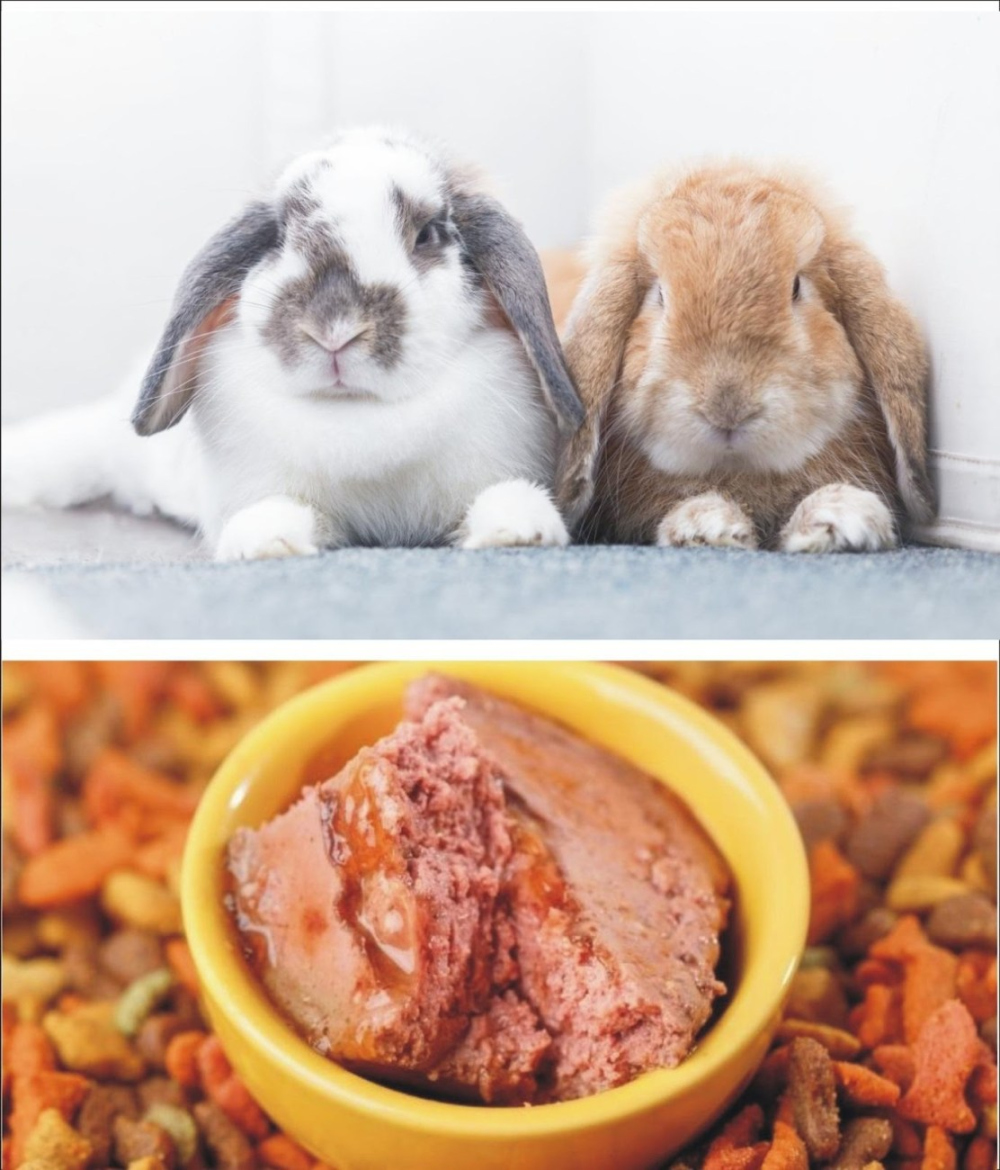What Happens If a Rabbit Eats Cat Food?
Rabbits are adorable, herbivorous creatures known for their love of carrots and leafy greens. However, if given the opportunity, these curious creatures may also attempt to snack on other types of food, including cat food. While an occasional nibble may not cause any harm, regularly feeding your rabbit cat food can have negative consequences on their health and well-being. Let’s explore what happens when a rabbit eats cat food.

1. Nutritional Imbalance
Rabbit food and cat food have significantly different nutritional compositions. Cat food is specifically formulated for the dietary needs of felines, which are obligate carnivores. It typically contains high levels of animal-based protein, fat, and other ingredients that may not be suitable for rabbits.
Rabbits, on the other hand, require a diet that is high in fiber, low in fat, and low in protein. Their digestive systems are designed to process fibrous plant material efficiently. Consuming cat food, which is rich in meat protein, and fat, can lead to an imbalance in the rabbit’s diet and potential digestive issues.
2. Digestive Problems
Rabbits have a delicate digestive system that relies on a complex balance of bacteria and enzymes to break down fibrous plant material. When a rabbit consumes cat food, which is high in protein and fat, it can disrupt this delicate balance and lead to digestive problems such as diarrhea, bloating, and gastrointestinal discomfort.
The high-fat content in cat food can overwhelm a rabbit’s digestive system, leading to difficulties in processing and absorbing nutrients. This can cause nutritional deficiencies and further exacerbate digestive issues.
3. Weight Gain
Due to their sedentary lifestyle, cats require higher amounts of calories to sustain their energy levels compared to rabbits. Cat food is typically formulated to meet these higher energy needs, which may result in a higher caloric intake for rabbits if they consume it regularly.
Over time, this excessive calorie intake can lead to weight gain and obesity in rabbits. Obesity in rabbits can have serious health consequences, including an increased risk of joint problems, heart disease, and a shortened lifespan.
4. Dental Issues
Rabbit teeth have evolved to continuously grow throughout their lives, requiring constant wear to prevent overgrowth. A rabbit’s natural diet, which consists of fibrous plant material, helps wear down their teeth naturally.
If a rabbit eats cat food, which lacks the necessary fiber content, their teeth may not receive the appropriate wear, leading to dental issues such as overgrown teeth, malocclusion, and painful dental spurs. These dental problems can cause significant discomfort and make it challenging for the rabbit to eat properly.
FAQs
1. Can a rabbit eat cat food occasionally?
While an occasional nibble of cat food may not cause immediate harm, it is best to avoid feeding cat food to rabbits altogether. Regular consumption of cat food can lead to nutritional imbalances, digestive problems, weight gain, and dental issues in rabbits.
2. What should I do if my rabbit accidentally consumes cat food?
If your rabbit accidentally consumes cat food, monitor them closely for any signs of digestive distress such as diarrhea or bloating. Offer plenty of fresh water and hay to help aid their digestion. However, if you notice any concerning symptoms, it is best to consult a veterinarian for further guidance.
3. Can cat food be harmful to rabbits in the long term?
Yes, regularly feeding cat food to rabbits can have negative long-term effects on their health. The nutritional imbalances, digestive problems, weight gain, and dental issues associated with cat food consumption can lead to serious health complications and a decreased quality of life for the rabbit.
4. What is the best diet for rabbits?
Rabbits require a diet that is high in fiber and low in fat and protein. A balanced diet for rabbits should primarily consist of fresh hay, a variety of leafy greens, and a limited amount of rabbit-specific pellets. It is vital to provide clean water and ensure their diet is rich in fiber to support their digestive health.
In conclusion, feeding your rabbit cat food on a regular basis can have detrimental effects on their health. It is best to stick to a diet specifically formulated for rabbits, ensuring they receive the necessary fiber, nutrients, and a well-balanced nutritional profile. If you have any concerns or questions about your rabbit’s diet, it is always wise to consult a veterinarian for guidance and specific recommendations.
Related Articles…
Copyright Notice:
The images displayed here are sourced from the internet, with copyrights held by respective owners. For removal of any copyrighted image, please email us.